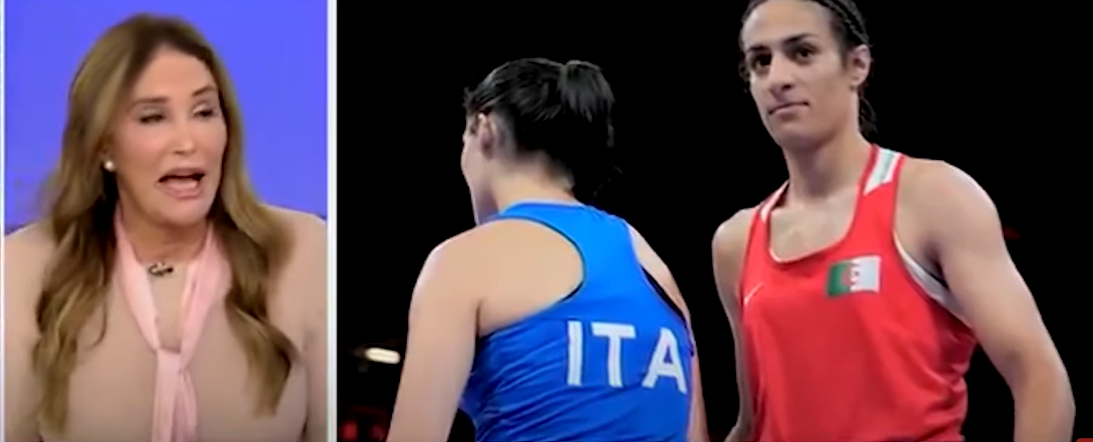Hey there, loyal Beards readers! Today, we dive into a hot-button issue that has been buzzing in the sports world. Caitlyn Jenner recently sparked a conversation about fairness in sports, specifically focusing on the Olympic Committee’s controversial decision to allow an intersex athlete to compete. This move has raised serious questions about the integrity and safety of women’s sports. Let’s break down the facts and explore what’s really going on here.
The Fairness Debate: Physical Advantages in Sports
Caitlyn Jenner, a former Olympic athlete herself, posed a thought-provoking question: Are we penalizing athletes for their natural-born attributes? Take LeBron James and Spud Webb as examples. LeBron, standing at 6’10”, certainly has a physical advantage over Spud, who is only 5’9″. Yet, both made it to the NBA and have had successful careers. This comparison highlights a fundamental aspect of sports—natural physical differences.
The Media’s Role in Blowing Up the Issue
Jenner pointed out that the intersex population makes up a minuscule 0.1% of the population. Despite this, the media has taken this issue and amplified it beyond proportion. We live in a time where media sensitivity can drive public opinion and policy, often without considering the broader implications. The Olympic Committee’s decision appears to have been influenced more by media pressure than by the best interests of the athletes or the sports themselves.
The Olympic Committee’s Controversial Decision
Allowing an intersex athlete to compete in women’s events has raised eyebrows for several reasons. Firstly, it questions the integrity of women’s sports. Sports competitions are designed to be fair, but when physical differences become too pronounced, it can undermine the level playing field that sports are supposed to provide. Secondly, there’s the issue of safety. In many sports, physical contact is unavoidable, and significant differences in physical attributes can lead to increased injury risks.
The Integrity of Women’s Sports at Risk
The core of Jenner’s argument is about protecting the integrity of women’s sports. By allowing athletes with significant physical advantages to compete, the essence of fair competition is compromised. Women’s sports are designed to showcase the talents and hard work of female athletes. When the playing field isn’t level, it’s not just unfair—it’s a betrayal to all those who have fought for equal opportunities in sports.
The Safety Concerns
Safety is another critical concern. In contact sports, the risk of injury is always present. However, when there’s a significant disparity in physical strength or size, that risk increases. Jenner emphasized that the Olympic Committee should have considered these factors before making such a decision. Protecting athletes’ safety should be paramount, and decisions influenced by media sensitivity rather than factual analysis can lead to dangerous outcomes.
The Media’s Hypersensitivity
The media today is incredibly sensitive to issues of gender and identity. While it’s essential to respect and understand these perspectives, decisions affecting sports must be grounded in fairness and safety. Jenner argues that the Olympic Committee, under media pressure, made a choice that doesn’t align with these principles. Instead of preserving the integrity and safety of women’s sports, they caved to media narratives.
Broader Implications for Sports
What does this mean for the future of sports? If media-driven decisions continue to influence sports policies, we could see more instances where fairness and safety are compromised. It sets a dangerous precedent where the loudest voices, rather than the most reasoned ones, dictate the rules. This could lead to a slippery slope where sports as we know them change fundamentally, and not necessarily for the better.
Final Thoughts
Caitlyn Jenner’s comments have shed light on a critical issue in today’s sports world. The integrity and safety of women’s sports are at stake, and decisions influenced by media hypersensitivity can have far-reaching consequences. It’s essential to strike a balance between inclusivity and fairness, but not at the expense of the principles that make sports what they are. The Olympic Committee’s controversial decision serves as a wake-up call to all sports governing bodies to put fairness and safety first.
What do you think about this issue? Should the Olympic Committee have handled it differently? Let us know your thoughts in the comment section below. Your voice matters, and we want to hear from you!


Leave a Comment